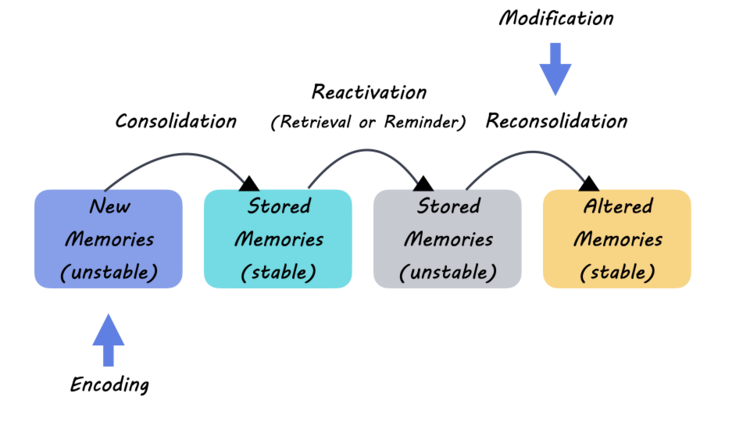Boston Marathon psychology delves into the intricate mental landscapes of those who choose to run the iconic 26.2 miles. Beyond physical endurance, this remarkable event taps into deep-seated emotions and personal motivations that vary from runner to runner. Participants often share a common thread: the psychological benefits of running manifest through their unique experiences, be it overcoming personal adversity or striving towards a self-defined goal. As they cross the finish line, each runner’s Boston Marathon experience transforms not just their body, but their mind, offering a potent insight into the interplay of mental health marathon dynamics within this strenuous journey. It is this rich tapestry of running motivations that makes the Boston Marathon a profound psychological phenomenon in the world of athletics.
Exploring the mental dynamics at play during this historic marathon reveals how personal challenges and psychological resilience shape runners’ experiences. The Boston Marathon serves as a catalyst for participants to confront their fears and push their limits, effectively becoming a journey of self-discovery as they navigate through the miles. Each runner’s objectives—from personal bests to altruistic endeavors—highlight the multifaceted nature of marathon challenges. By engaging with the demanding nature of long-distance running, they unlock various psychological benefits that extend beyond physical fitness, ultimately reshaping their self-perception. Thus, the deep psychological insights gained through marathon training illuminate the essential role of mental fortitude in achieving one’s goals.
The Psychological Drive Behind Marathon Running
The motivation to run a marathon goes beyond mere physical fitness for many participants. Runners often embark on this grueling 26.2-mile journey to confront personal challenges, heal emotional wounds, or honor the memory of loved ones. Each runner’s story is unique—some may be battling their inner demons, while others are drawn to the camaraderie and community spirit that races like the Boston Marathon foster. This psychological drive highlights the importance of mental health in marathon running, as participants seek affirmation and purpose through their preparations and performance.
Moreover, the psychological benefits of running are well documented. Engaging in such a rigorous physical challenge can lead to an improved sense of self-worth and emotional resilience. The act of training for a marathon involves setting and achieving goals, which can transform a runner’s mindset and enhance their overall well-being. Each step toward the finish line serves as a testament to their endurance, not just physically, but mentally and emotionally as well.
Boston Marathon Experience: A Journey of Transformation
The Boston Marathon is more than a race; it’s an experience that intertwines the physical and psychological aspects of running. For many, crossing the finish line symbolizes personal triumph and transformation. Psychologist Jeff Brown emphasizes that achieving this milestone is about more than just completing a race—it’s about realizing one’s potential and overcoming personal battles. Each runner’s experience creates a tapestry of emotion, reflection, and purpose that extends beyond the physical challenge of the marathon.
As participants gather in Hopkinton, Massachusetts, they bring with them a multitude of backgrounds and stories. The Boston Marathon can serve as a therapeutic outlet, with runners channeling their energy and emotions into a focused, shared endeavor. This collective experience enhances the sense of community among participants, encouraging personal growth, resilience, and a shared sense of accomplishment. The interplay of personal motivations and communal solidarity makes the Boston Marathon a deeply poignant event in the realm of athletics.
Mental Health and Marathon Training Insights
The relationship between marathon training and mental health is profound. For many individuals, the discipline involved in preparing for such a demanding race fosters a sense of routine and stability, which can be particularly beneficial in managing mental health issues. Training for a marathon encourages physical fitness, but it simultaneously cultivates mental resilience. The act of running itself releases endorphins, often referred to as ‘runner’s high’, which can alleviate feelings of anxiety and depression.
Additionally, marathon training allows individuals time for introspection—prompting them to reflect on their goals, fears, and aspirations. This mindfulness aspect, essential for both mental health and performance, can lead to improved emotional well-being. Brown’s observations at the Boston Marathon point to the transformative power of these long-distance races, as runners emerge from the experience not just physically stronger, but with enhanced mental fortitude and clarity.
Running Motivations: The Stories Behind the Steps
Every runner at the Boston Marathon carries their own unique motivation for participating. Some may run to raise awareness for a cause, while others may do it as a tribute to someone they love. These motivations fuel their passion and determination to train extensively, often turning a seemingly selfish act into a selfless journey. Understanding the various reasons behind each runner’s decision to take on such a monumental task highlights the psychological depth inherent in marathon running.
Moreover, these motivations serve as powerful catalysts for personal change. Runners often report that their experiences lead to new perspectives on life, opening doors to resilience and hope that they never thought possible. The shared sense of purpose among participants showcases how marathon running can unify individuals with diverse backgrounds, creating a rich tapestry of stories that enhance the collective experience of the Boston Marathon.
The Emotional Spectrum of Marathon Finishers
Crossing the finish line of the Boston Marathon elicits a spectrum of emotions, ranging from ecstatic celebration to profound reflection. Many runners experience an overwhelming sense of joy as they complete a goal they have invested months, if not years, in achieving. The dichotomy of emotions, as noted by psychologist Jeff Brown, suggests that this moment serves as a culmination of struggle, determination, and personal growth, manifesting in tears of relief and joy among finishers.
These emotional responses underscore the connection between physical exertion and psychological release. For some, finishing a marathon can symbolize a monumental life achievement, providing validation for the efforts they have made along the way. Celebrating this success with fellow participants fosters a sense of belonging and shared understanding, reinforcing the idea that the marathon experience is not just about the physical act of running, but about the emotional journey it represents.
Community and Solidarity in Marathon Running
One of the most enriching aspects of participating in the Boston Marathon is the sense of community it fosters among runners. As they prepare for the race, many find solace and encouragement in the bonds they create with fellow participants. This camaraderie can play a crucial role in improving mental well-being, as the support and motivation from others bolster their commitment to their training and personal goals.
During the marathon, runners experience solidarity as they face the challenges of the race together. The cheers from spectators, the presence of fellow runners, and the shared excitement of the event create a unique atmosphere that enhances the overall experience. The mental health benefits derived from this sense of belonging cannot be overstated, as it often inspires individuals to push through mental and physical barriers they might not overcome alone.
The Transformative Power of Setting Personal Goals
Setting personal goals is a crucial aspect of training for a marathon, and its psychological benefits are significant. For many, the process of establishing achievable targets provides a roadmap for their journey, instilling a sense of direction and purpose. These goals can be anything from completing specific distances in training to achieving a personal best on race day. The act of working towards these milestones fosters persistence and determination, key traits that enhance mental resilience.
Additionally, accomplishing set goals provides runners with a profound sense of accomplishment and pride, which can positively influence their self-esteem and mental health. Each achieved milestone, whether it’s a training run or crossing the finish line at the Boston Marathon, acts as a reinforcement of the runner’s capability, encouraging them to set new aspirations and challenges in their lives and in their future running endeavors.
Embracing Challenges: The Role of Mental Toughness in Running
Marathon running demands a significant level of mental toughness, a quality that many runners cultivate through their training. Facing the physical and psychological challenges inherent in such long-distance races equips individuals with the resilience needed to push through difficulties. This mental fortitude not only aids in successful race completion but also translates into everyday life, helping runners manage stress and overcome personal challenges they may encounter.
The Boston Marathon, with its unpredictable weather and demanding course, amplifies this need for mental strength. Participants often learn to navigate not only their physical limitations but also their mental hurdles, emerging from the experience with greater confidence and self-efficacy. By cultivating mental toughness through marathon running, individuals find themselves better prepared to tackle life’s obstacles, making this sport a profound teacher of resilience and determination.
Running as a Tool for Emotional Healing
Running has long been recognized for its therapeutic effects, particularly when it comes to emotional healing. Many individuals turn to marathon running as an outlet to cope with personal losses, trauma, and mental health struggles. Psychologist Jeff Brown notes that the Boston Marathon frequently sees participants running in memory of loved ones or as a means of overcoming significant life challenges. This ability to use running as a method for processing grief and trauma illustrates its profound impact on emotional health.
Moreover, the act of running itself promotes the release of endorphins, which can help alleviate symptoms of sadness or anxiety. By channeling emotions into physical activity, runners can find catharsis while improving their overall mental health. The stories of transformation witnessed at events like the Boston Marathon exemplify how running serves not only as a form of exercise but also as a powerful mechanism for personal and emotional renewal.
Frequently Asked Questions
What psychological benefits of running can be experienced when training for the Boston Marathon?
Training for the Boston Marathon offers various psychological benefits, including improved mood, reduced anxiety, and enhanced self-esteem. Runners often experience feelings of accomplishment as they achieve personal bests and overcome challenges, fostering a positive self-image and emotional resilience.
How does the Boston Marathon experience shape running motivations for participants?
The Boston Marathon experience profoundly impacts running motivations. Many participants are driven by personal challenges, such as honoring lost loved ones or overcoming personal struggles, leading to a deep emotional connection to their training and race day.
What marathon training insights can help enhance psychological readiness for the Boston Marathon?
Marathon training insights emphasize the importance of mental preparation, including visualization techniques, setting realistic goals, and developing a positive mindset. These strategies can help runners manage stress and stay focused on their journey, enhancing their overall Boston Marathon experience.
How can mental health marathon initiatives support runners participating in the Boston Marathon?
Mental health marathon initiatives provide valuable support to runners by promoting awareness of psychological well-being during training and racing. Resources such as counseling, stress management workshops, and peer support groups help athletes address mental health challenges, ensuring a healthier Boston Marathon experience.
What unique psychological challenges do runners face during the Boston Marathon?
During the Boston Marathon, runners may encounter psychological challenges such as anxiety, fear of failure, and physical fatigue. The pressure to perform can lead some to push their limits, requiring strong mental fortitude to navigate the emotional highs and lows throughout the race.
How does the Boston Marathon encourage self-discovery and mental resilience among runners?
The Boston Marathon encourages self-discovery and mental resilience by providing a structured setting where individuals confront their limits and push through adversity. Each runner’s unique journey cultivates confidence, self-awareness, and a significant sense of achievement.
Why is understanding marathon psychology important for new Boston Marathon runners?
Understanding marathon psychology is crucial for new Boston Marathon runners as it aids in addressing mental barriers and enhancing their race experience. By recognizing the mental aspects of training and racing, newcomers can develop coping strategies and resilience that lead to a more successful marathon journey.
| Key Aspects | Details |
|---|---|
| The Role of Psychology in Running | Psychologist Jeff Brown conducts evaluations and supports runners dealing with physical and emotional distress. |
| The Personal Nature of Motivation | Runners are driven by deeply personal reasons, whether it’s honoring loved ones, pursuing health, or personal goals. |
| Physical Challenge | Running the Boston Marathon requires significant cardiovascular endurance, often in challenging conditions. |
| Achievement and Recognition | Finishers receive a medal, providing a tangible reward and a sense of accomplishment that can transform self-perception. |
| Emotional Reactions | Runners experience a wide range of emotions upon finishing, from joy and tears to reflection and pride. |
| Community and Support | The marathon serves as a platform for individuals to connect and share their stories, fostering a sense of belonging. |
Summary
Boston Marathon psychology plays a crucial role in understanding the motivations and experiences of runners. The marathon is not just a test of endurance but a transformative journey shaped by personal motivations and emotional responses. Runners often confront physical and psychological challenges, leading to feelings of triumph when overcoming adversity. Jeff Brown, the head psychologist for the marathon, emphasizes the profound connection between mind and body, showcasing how completing the race can reshape self-image and provide a sense of achievement. With each finisher carrying their own unique story, the Boston Marathon encapsulates a rich tapestry of human experience, underscoring the psychological journey interwoven with running.









